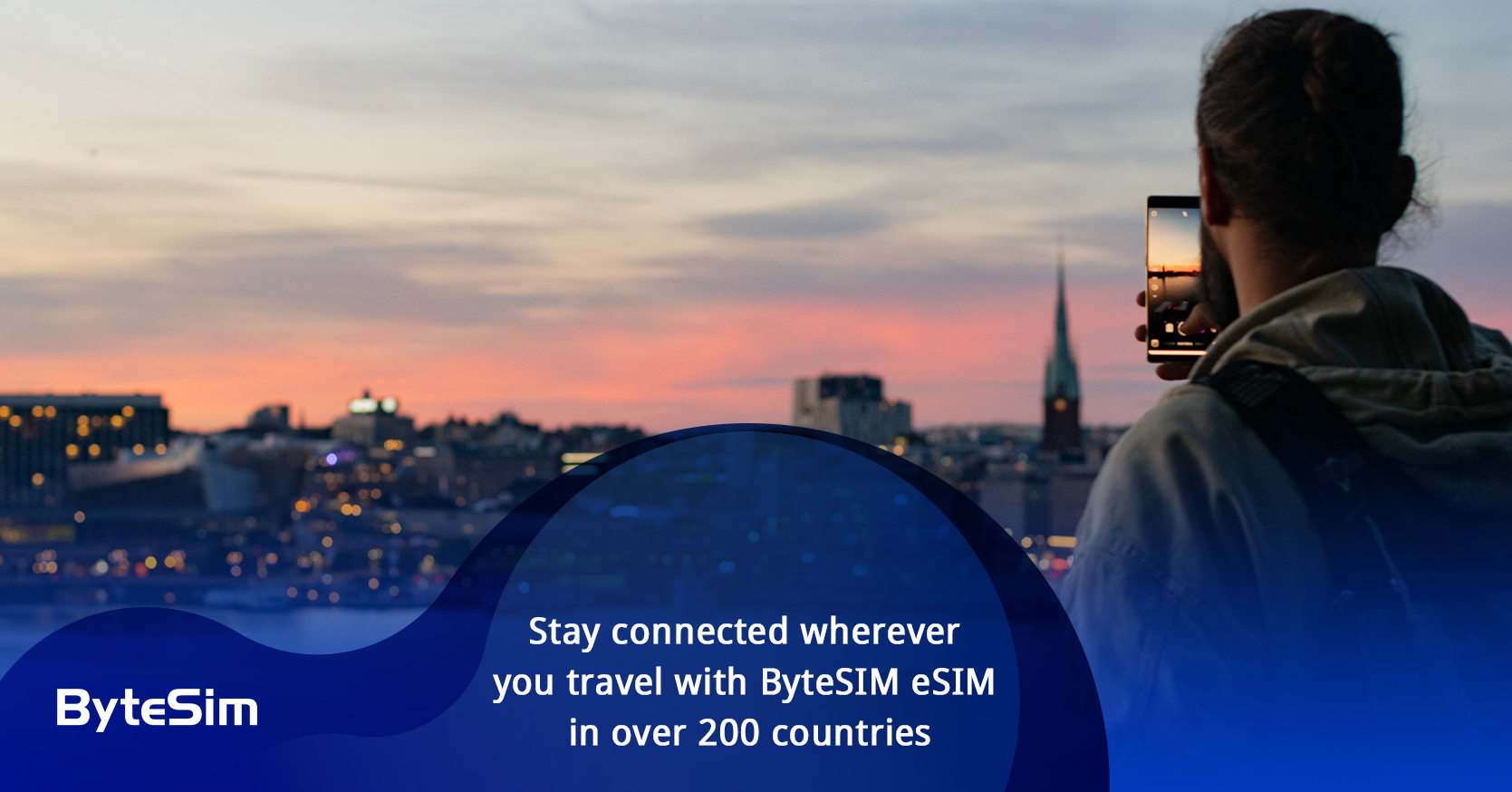Our Life Is Changing Tremendously-eSIM Application and Its Prospect
Jan 30,2024 | wilming
IntroductionThe Growth Trajectory of ESIM Applications Consumer Electronics and Smartphones: Pioneering the ESIM RevolutionAutomotive Connectivity and IoT: Unraveling the Potential of ESIM Technology Barriers and Catalysts for ESIM Growth: Navigating Security Concerns and Market Dynamics Barriers to ESIM Growth: Catalysts for ESIM Growth: ConclusionTo Learn More About:

Photo online map navigation on smartphone transport bus concept generative ai
Introduction
In the ever-evolving landscape of technology, the emergence of eSIM (Embedded Subscriber Identification Module) applications represents a pivotal juncture, poised to redefine connectivity, convenience, and security across a diverse spectrum of devices and industries. As we delve into the depths of this transformative trend, it becomes increasingly evident that eSIM technology is not just a passing fad, but a revolutionary force that is poised to reshape the way we interact with our devices and the world around us.
The Growth Trajectory of ESIM Applications
The global eSIM market size, which was valued at USD 8.07 billion in 2022, is projected to grow at a compound annual growth rate (CAGR) of 7.9% from 2023 to 2030, illuminating an accelerating pace of adoption and integration of eSIM technology. This progression is driven by the rising adoption of Internet of Things (IoT) -connected devices in Machine to Machine (M2M ) applications and consumer electronics, indicating a fundamental shift in the connectivity paradigm. The surge in the number of eSIM profiles downloaded across consumer devices underscores the rapid proliferation of eSIM-connected devices, a trend that is expected to continue on an upward trajectory. Furthermore, the advent of eSIM in the automotive industry has facilitated enhanced cellular connectivity for vehicles, unlocking a myriad of advanced capabilities and features. The recent implementation of the GSMA-embedded SIM specification in the automotive sector represents a significant leap toward fortifying vehicle connectivity and security, amplifying the potential of eSIM technology to revolutionize the automotive landscape.
![]()
express delivery, online shopping, order tracking or delivery app concept. 3d polygonal digital illustration.
Amidst these advancements, it is imperative to acknowledge the pivotal role of eSIM technology in enabling the realization of Industry 4.0 , the much-heralded transformation marked by the integration of smart machinery with automated communication and control. As M2M systems continue to rely on public and cellular networks for internet access, the integration of eSIM technology into M2M systems has facilitated remarkable advancements within the connected ecosystem.

photo person using ai tool at job
Consumer Electronics and Smartphones:
Pioneering the ESIM Revolution
The burgeoning penetration of smartphones across key global markets such as China, India, Japan, and the U.S. has catalyzed the rapid adoption of eSIM technology. This trend is further perpetuated by the active involvement of major smartphone and consumer electronics manufacturers in integrating eSIM technology into their devices, underscoring the burgeoning potential of eSIM technology to redefine the user experience, security, and convenience. Notably, industry giants such as Apple Inc., Samsung Electronics Co., and Motorola Mobility LLC have been at the forefront of this paradigm shift, embracing eSIM technology and paving the way for its widespread adoption. It is forecasted that by 2025, a substantial majority of smartphone unit sales will be eSIM-compatible, signifying a monumental shift toward ubiquitous eSIM adoption.

Photo mobile phone connection.
Furthermore, the deployment of eSIM technology has equipped smartphones and consumer electronics with automatic interoperability across multiple SIM operators and connection platforms, in addition to enabling remote SIM profile provisioning. However, the multifaceted nature of eSIM operations involving numerous network service providers poses complex security challenges, necessitating robust measures to mitigate potential vulnerabilities that might impede market expansion.
Automotive Connectivity and IoT: Unraveling the Potential of ESIM Technology
The adoption of eSIM technology in the automotive sector has heralded a new era of connectivity, facilitating an array of connected services and capabilities that promise to redefine the automotive experience. By empowering vehicles with cellular connectivity, eSIM technology has laid the groundwork for a future where all cars are cellular-enabled, thereby ushering in a transformative era marked by enhanced safety, navigation, entertainment, and efficiency. The implementation of the GSMA -embedded SIM specification in the automotive industry represents a significant milestone in fortifying vehicle connectivity and security, underscoring the growing foothold of eSIM technology within the automotive landscape.

photo people generating images using artificial intelligence on laptop
Moreover, the proliferation of IoT-connected devices across various industries, including healthcare, manufacturing, and transportation, has been catalyzed by the seamless integration of eSIM technology. The networked environment facilitated by Industry 4.0, characterized by the seamless transfer of actionable data between M2M and Machine to Other (M2O) devices via the IoT, has been propelled by the integration of eSIM technology into M2M systems. This integration has not only contributed to the expansion of the market but has also underpinned the advent of smart machinery with automated communication and control, epitomizing the transformative potential of eSIM technology.
Barriers and Catalysts for ESIM Growth: Navigating Security Concerns and Market Dynamics
The growth of eSIM technology is subject to various barriers and catalysts that significantly influence its trajectory in the market. Understanding these factors is crucial for comprehending the dynamics of eSIM adoption and its potential for widespread integration.
Barriers to ESIM Growth:
-
Industry Adoption Challenges: Despite the technological advancements and potential benefits of eSIM, the adoption by network operators and device manufacturers has been gradual. The complexity of transitioning from traditional SIM cards to eSIMs poses a challenge, requiring substantial investment and operational changes.
-
Regulatory Hurdles: The regulations and standards governing eSIM technology vary across different regions, creating complexities for global deployment. Harmonizing these regulations and ensuring interoperability is essential for widespread eSIM adoption.
-
Security Concerns: The implementation of eSIM technology introduces new security challenges, including the potential for cyber threats and unauthorized access. Addressing these security concerns is paramount to instill confidence in consumers and businesses.
-
Maturity of Technology: As with any emerging technology, the maturity of eSIM technology is a concern for some industry stakeholders. The time required for the technology to evolve, costs to decrease, and the improvement of user experience might pose as hindrances to its widespread adoption.

photo word
Catalysts for ESIM Growth:
-
Internet of Things (IoT) Proliferation: The exponential growth of IoT-connected devices and applications necessitates seamless and scalable connectivity solutions, making eSIM technology a catalyst for IoT expansion.
-
Automotive Industry Integration: The implementation of eSIM in the automotive industry has demonstrated the potential for enhanced vehicle connectivity and capabilities. This integration serves as a catalyst for broader eSIM adoption, paving the way for a new era of connected automobiles.
-
Cellular Connectivity Advancements: The demand for enhanced cellular connectivity in consumer electronics and smart devices has bolstered the appeal of eSIM technology, positioning it as a catalyst for seamless network integration and flexibility.
-
Evolving User Needs: As consumer preferences shift towards more flexible and secure connectivity solutions, the inherent benefits of eSIM technology, such as remote SIM provisioning and automatic interoperability, serve as strong catalysts for its adoption.
-
5G Era Opportunities: With the advent of 5G technology, the need for scalable and secure connectivity solutions has become more pronounced. eSIM technology is poised to capitalize on the opportunities presented by the 5G era, serving as a catalyst for its widespread integration.

Photo wooden cubes with text yes on white putty texture background. affirmative response. concept. flat lay, top view.
Conclusion
The future of eSIM applications is not merely a trend but a transformative force that will shape the way we connect, communicate, and interact with the world around us. Although there is still a long road to embrace the popularity and proliferation of eSIM application, the eSIM is bound to be the trend of future since may indications such as the ever-increasing concerns and struggles from governments and researchers of technology-leading countries like US, China, Japan. Overcoming the barriers and leveraging the catalysts is essential for propelling eSIM into the mainstream, unlocking its transformative potential across diverse industries and applications. Do believe the bright future of eSIM!
To Learn More About:
ByteSIM ----the most cost-effective eSIM data plan.




